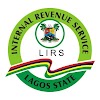Syndicate Forging Customs Signature To Clear Cargoes At Seaport Arrested
A syndicate which comprises four clearing agents who specialise in forging the signature of the Customs Area Controller of Tin-Can Island customs command has been arrested.
Disclosing this during a media briefing on Friday, the Customs Area Controller of Tin-Can Island Customs Command, Comptroller Adekunle Oloyede explained that luck ran out of the four clearing agents when they attempted to take imported vehicles out of the port using forged signatures.
According to Oloyede, “You know that the signature aspect of the clearance procedure has not been automated. Very soon, we will be automating that aspect too.
“It’s because the signature aspect of the clearance procedure has not been automated, these unscrupulous agents, four in numbers, attempted to clear some imported vehicles out of the port with my forged signature.
‘Thanks to eagle-eyed customs officials who detected and arrested them. Four units of used Mack truck heads, one unit of used Toyota Sequoia 2008 Model, one unit of used Mercedes: Benz GL450 2008 Model and one unit of used 2011 Toyota 4Runner were arrested in their possession.
“It was the case with the “Machine Outside” era, but when we automated our processes, that stopped. Now, when these unscrupulous agents saw that automation has stopped the “Machine outside” activities, they now shifted attention to forging of signatures.”
On the implementation of the Vehicle Identification Number (VIN) Valuation, Controller Oloyede explained that “The operational processes of the Nigeria Customs Service in the year under review strongly align with the theme for the 2022 International Customs Day which was ‘scaling up customs digital transformation by embracing a data culture and building a data ecosystem’.
“This is evident through the implementation of the VIN-Valuation service, a service that depends solely on the information stored on Customs and third party databases to determine the value of an imported vehicle for the purpose of determining customs duty.
“VIN Valuation was deployed in March 2022 as a Service which h uses information obtained through Artificial Intelligence (AI) to assign values to an imported vehicle based on its unique identification number otherwise known as the chassis number.
“The objective of the VIN-Valuation Service is to simplify and facilitate the customs clearance process of legitimately imported vehicles by providing a uniform, fair and neutral value across the board on vehicles with identical brands, models and years of manufacture in line with the provision of Article VII of the General Agreement on Tariffs and Trade (GATT) of 1994.
“At the Command level, we faced challenges at the early stages of deployment due to the degree of understanding of the process, most especially on the part of stakeholders. “Nevertheless, we have been able to overcome them as we put into force Article 2 of the Trade Facilitation Agreement through continuous engagement and consultation with the relevant stakeholders which led to updates and upgrades of the service to address some of these challenges.
“We have also strengthened the risk management structure to mitigate the consistent attempts by some non-compliant agents to abuse the process through acts of commercial fraud such as falsification of documents and forgery of signatures.
“So far, the VIN-valuation has helped the Command to achieve an expedited clearance process due to predictability of value-assessment, increase in revenue generation, improved ease of doing business, generation of accurate statistics for Federal Government and a host of others.”



.jpg)


.gif)
0 Comments